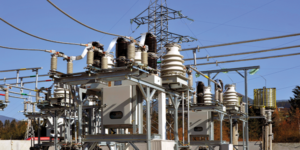The global impact of climate change is threatening the very existence of human life. Human activities have inflicted unprecedented harm on our environment, some of which are irreversible. As the situation arises today, renewable energy and sustainability are the keys to achieving a liveable future. In this pursuit, smart metering systems could play a pivotal role in underlining sustainability and safeguarding our planet.
Climate change has accelerated the need for a transition to renewable energy.
Traditional energy sources, primarily fossil fuels, contribute significantly to greenhouse gas emissions, exacerbating global warming. The adverse effects of climate change, such as extreme weather events, rising sea levels, and loss of biodiversity, underline the urgency of adopting sustainable practices. Renewable energy sources, such as solar, wind, and hydropower, are crucial in mitigating these impacts and achieving a sustainable energy future.
Role of smart metering in renewable energy adoption
Smart meters are digital devices that provide real-time data on energy consumption. Unlike conventional meters, smart meters offer detailed insights into energy usage patterns, enabling consumers and utilities to manage energy more efficiently. This technology is instrumental in integrating renewable energy sources into the grid and enhancing energy efficiency.
- Efficient Energy Management: Smart meters facilitate better energy management by providing accurate consumption data. This allows consumers to adjust their usage during peak demand periods, reducing the strain on the grid and promoting energy conservation.
- Renewable Energy Integration: With the increasing use of renewable energy sources which tend to be intermittent in nature, the variability of power supply poses a significant challenge. By accurately forecasting flux and fluctuations, utilities can better manage the integration of renewable sources into the overall grid energy mix.
- Demand Response Programs: Smart meters enable demand response programs where consumers are incentivized to reduce or shift their energy usage during peak periods. This not only helps in stabilizing the grid but also encourages the use of renewable energy when it is most abundant.
India’s energy transition journey
Central to India’s energy transition goals is the imperative to achieve net-zero emissions by 2070. India’s energy sector is undergoing a radical metamorphosis, with renewable energy playing a crucial role. The country has rapidly expanded its solar, wind, and hydropower capacities. As industrial activities surge under initiatives like ‘Make in India’ and ‘Atma Nirbhar Bharat,’ the government ensures that the energy trajectory matches the pace of sustainability goals.
In this green energy scenario, smart metering systems can play a king-size role. By harnessing the power of advanced technologies and strategic partnerships, India has rolled up its sleeves to unlock new frontiers in energy management. Smart metering system provide critical data that helps in optimizing the use of renewable energy and reducing wastage, contributing significantly to India’s sustainability goals.
Global market trends and projections
The market for smart grid technologies is driven by the increasing demand for energy-efficient solutions. The rising adoption of renewable energy sources like solar and wind necessitates smart grid technologies for effective distribution and management of variable power supplies. Governments worldwide are pushing for smart grid technologies to maximize energy efficiency and minimize carbon emissions.
According to a report published by Verified Market Research®, the Global Smart Grid Market is projected to grow at a CAGR of 20.73% from 2024 to 2031. The market was valued at USD 23.23 billion in 2024 and is expected to reach USD 104.43 billion by the end of the forecast period. This data underscores the potential of smart electric metering system in providing environmental benefits through renewable energy integration, demand reduction, and conservation.
Environmental, economic benefits
Smart meters offer numerous environmental and economic benefits. By providing detailed insights into energy consumption, they help in identifying areas for energy savings, thus reducing overall energy demand. This leads to lower greenhouse gas emissions and a smaller carbon footprint. Additionally, smart metering supports the growth of renewable energy markets by enabling better integration and management of these variable energy sources.
Economically, smart meters reduce operational costs for utilities by minimizing the need for manual meter readings and improving billing accuracy. Consumers also benefit from more accurate bills and the ability to manage their energy usage more effectively, potentially lowering their energy costs.
Embracing future with smart metering
In the face of climate change, the adoption of renewable energy and smart metering systems is not just a choice but a necessity. These technologies are crucial for achieving energy efficiency, sustainability, and inclusive growth. By integrating smart meters into the energy grid, countries can significantly enhance their renewable energy capacities and reduce their carbon footprints.
For those looking to make a significant impact on their energy consumption and sustainability efforts, Radius Synergies International offers a disruptive range of smart metering systems. Embrace the future of energy management today and make the right choice with Radius Synergies. To discuss with our experts, you can write in at info@radius.co.in
Our ecology needs an apology from us, and that apology must be demonstrated through action.
As the world grapples with the challenges of climate change, smart metering stands out as a powerful instrument in driving renewable energy adoption and cultivating a sustainable future. By leveraging advanced technologies and strategic initiatives, we can pave the way for a greener, more prosperous world.
DISCLAIMER
Observations and options expressed in the article (except where specifically validated by market numbers and stats) belong to the contributing writer of the article, and are not necessarily indicative of the company’s position and stance in the matter.












